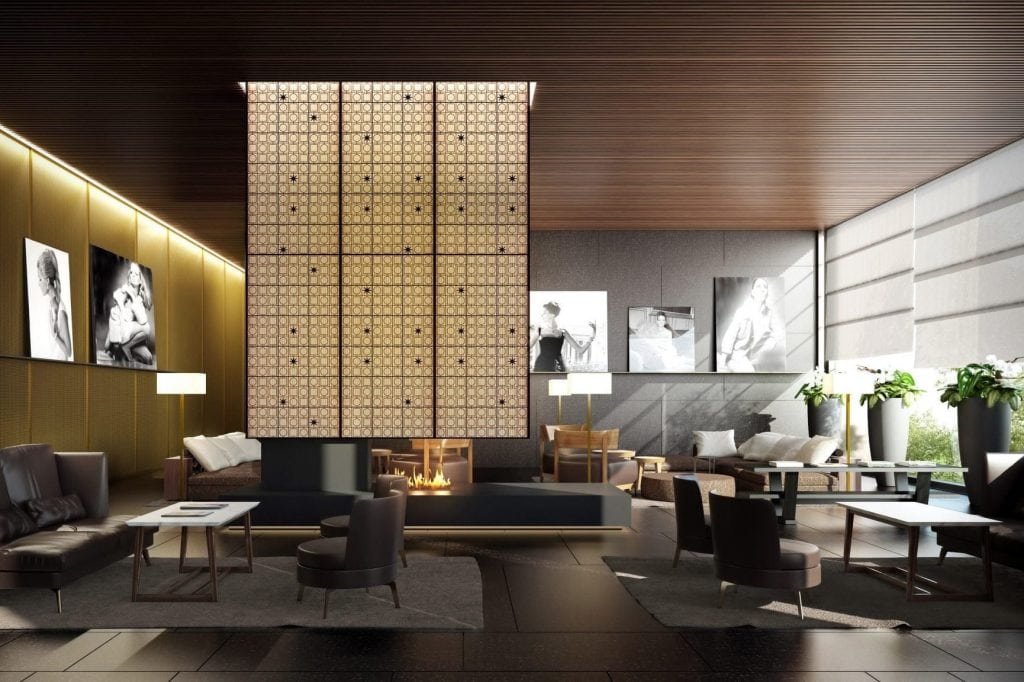Skift Take
It is said the future of luxury lies at the intersection of luxury and fashion, a nexus attractive to Chinese consumers who are still driven by brands and status in making purchase decisions.
The Bvlgari Hotel Shanghai opened this summer with the promise of becoming a hot spot of art and style as well as heralding a new breed of luxury hotels—those branded by fashion houses—into the Chinese luxury hospitality market.
The Shanghai outpost is the sixth of Bvlgari’s hospitality collection, and combines Italian design with Chinese style. For example, among its six food and beverage outlets on property, Il Ristorante serves contemporary Italian cooking curated by Italian chef Niko Romito and the other serves Cantonese haute cuisine at Bao Li Xuan.
“The Chinese clientele is a key market for all our properties as they admire expertise and handcrafted works, two concepts which are ingrained in their culture and in the made-in-Italy creations,” said Silvio Ursini, vice president of Bulgari Hotels and Resorts which also has branded hotels in Milan, London, Bali, Beijing, Dubai and an anticipated opening in Tokyo.
“The Bvlgari Hotels and Resorts were born as a nest for a refined tribe of global travelers willing to feel at home and beyond away from home. [Chinese guests] feel part of an exclusive community that shares similar tastes and mindsets such as a luxury experience in an exclusive and intimate yet glamorous setting.”
The synchronicities between fashion, luxury and travel are well suited to high-end Chinese consumers, who still seek branded experiences in comparison to their Western counterparts who are increasingly choosing experience over brand.
A 2016 McKinsey & Co. survey found that fashion, travel and food ranked among the top three ways that Chinese consumers spend money, with travel showing the largest increase of any category since 2012. And when it comes to shopping, clothing, handbags and beauty products are the most popular categories – the best of which align with a luxury fashion brand.
“The Chinese people love true luxury brands as they can rely on two important assets: an unmistakable identity and an impeccable service. Therefore, the possibility for the Chinese clientele to find the strong identity, the strong values and the recognizable style of a brand they love in the hospitality business is for them very attractive,” said Ursini.
One of the best examples of this intersection of fashion and hospitality is The Palazzo Versace in Dubai – a modern palace decorated by authentic Italian artisans, located in a dessert in the Middle East, and frequently visited by Chinese affluents.
China is one of the major source markets for the hotel.
“Having the possibility to experience a complete immersion into Versace brand attracts more and more of the Chinese luxury travellers. The experience is authentic, real and always photo-ready,” said General Manager Sandra Tikal.
“The unique element is that everything in terms of design is steeped in the heritage of the Versace brand. Wherever you are in the hotel, there is a story or connection and what surprises many first-time visitors is the harmony of design, the elegance and the serenity, the sense of place.”
With 5.9 international trips on average per year, wealthy Chinese accounted for a major share of China’s outbound travel and shopping plays a major factor in their choice of travel destination.
As Skift contributor Laura Powell reported earlier this summer, China also continues to drive the growth of the luxury market, giving brands good reason to invest in more engaging touch points with the demographic.
According to the Bain Luxury Goods Worldwide Market Study for Spring 2018, luxury spending across all global regions is likely to be six to eight percent higher this year than last (reaching $325-$331 billion), however, China is likely to account for the lion’s share of the growth in 2018.
Luxury hotels create new points of sale. For example, Chinese guests will often purchase the Palazzo Versace Dubai’s latest designs across tableware, bed linen, bathroom accessories and fashion from the Versace brand.
And while Chinese travelers are not traditionally known for seeking exclusive dining experiences, a younger and more sophisticated customer is entering the market and looking for more unique dining experiences.
The Armani Hotel Dubai responded to that demand last year when it partnered with Kee Club Shanghai to host a series of dining events with chef Jin Chul Kim – designed particularly with the Chinese guest in mind.
With luxury brands leading the way, it is not surprising to see lifestyle brands also getting into the mix. Japan’s cult home goods retailer Muji opened its Beijing hotel this summer after debuting a property in Shenzhen in early 2018.
The Daily Newsletter
Our daily coverage of the global travel industry. Written by editors and analysts from across Skift’s brands.
Have a confidential tip for Skift? Get in touch
Photo credit: The lobby of Bvlgari Hotel Shanghai. Luxury hotels want to tap into the increasingly lucrative Chinese market. Bvlgari Hotel Shanghai
